If you use your garage as your home office or an additional room or want to use it for the same, you have to ensure that it’s not moist and uneasy. Generally, garages tend to have high moisture levels, making it difficult to use the space for other purposes.
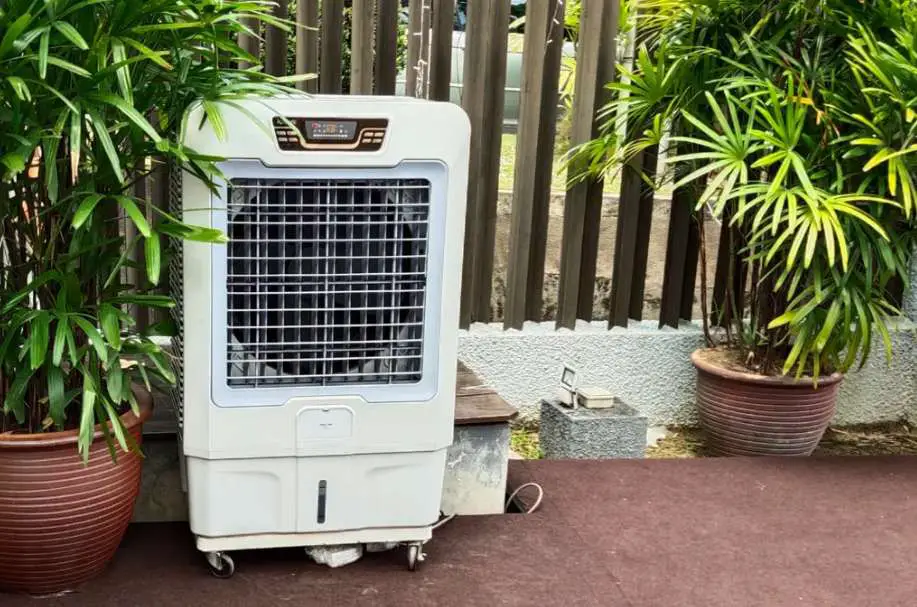
Besides, extreme moisture can also damage your car and reduce its life. However, you can keep all these in check by installing dehumidifiers in the garage.
In this article, we will tell you all about humidifiers in detail.
You May Also Like: How to Climate Control a Garage?
Should I put a Dehumidifier in my Garage?
To answer if you should buy dehumidifier for garage or not, we need to answer a few simple questions. Read below to know all about the humidifier and garage and decide what you want to do.
💁What is the best humidity for a garage?
The Ideal Garage Humidity is around 40-50%. Below I have explained some facts about garage humidifier, so you understand the garage humidity best and know how to control it.
Before buying a garage humidifier, you need to understand why garage dehumidifiers are different. Garage dehumidifiers can handle a variety of temperature ranges compared to traditional humidifiers. Generally, a garage dehumidifier has a temperature range between 42° Fahrenheit and 110° Fahrenheit.
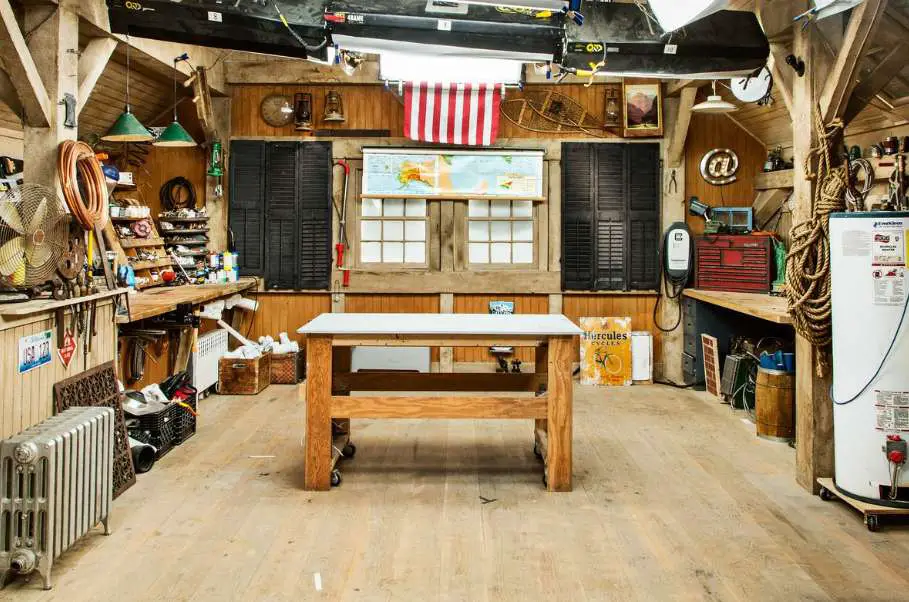
This wide temperature range sets garage humidifiers apart from similar products.
Additionally, garage dehumidifiers feature 30 pints of water and hose-based drainage features. Finally, they are also bigger than regular humidifiers.
Any garage dehumidifier with the required capacity, output, range, and actual temperature variations is the best.
💁Do Dehumidifiers Work in Garages?
Yes, they do, and having one in a garage is advisable. Consistent moisture from condensation and water from your vehicle results in the formation of mold and mildew on the garage walls. Such conditions can damage the structural integrity of the house as well.
Having a dehumidifier in the garage can prevent such issues and reduce overall maintenance efforts.
Besides, a damp garage is not of much use. Even if you use your garage to store boxes and other things, it will not be usable if the place is damp.
*Pro Tip: look for a dehumidifier that has the feature to attach drain hose, so you can empty the tank effortlessly.
💁What size dehumidifier do I need for my garage?
The size of the dehumidifier you will need for your garage will depend on a few factors. The space you have, of instance. If you don’t know the exact space availability, measure the floors’ length and width. Then multiply the measurements to determine the precise floor space or square footage.
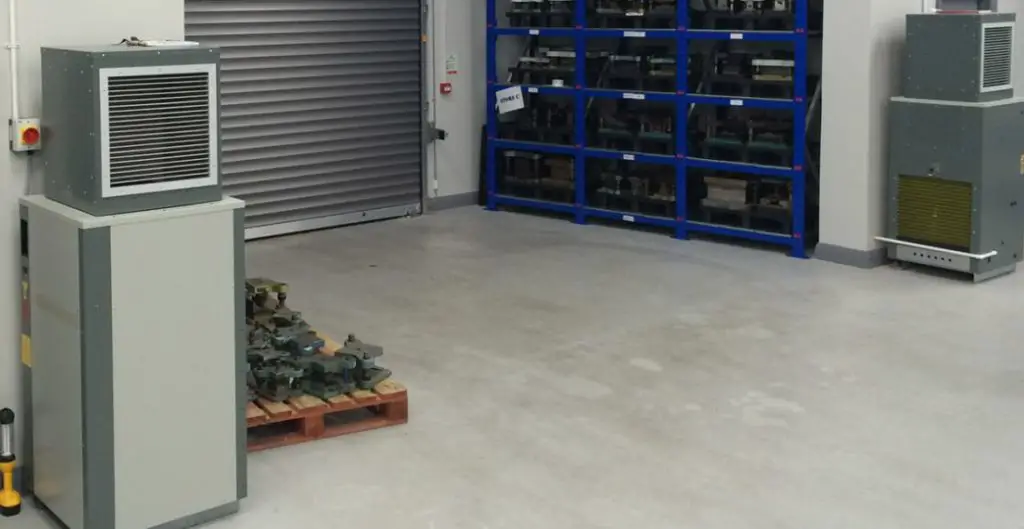
You also need to determine the moisture level of the garage. A dehumidifier’s capacity is based on the amount of moisture it removes in 24 hours. Going by that, a 30-pint dehumidifier removes 30-pint moisture.
How to Identify If Your Garage Has Humidity Issues?
If you smell a musty, stale odor in your garage, it may be due to excess moisture levels in the air.
Paint peeling off of walls is another sign of high moisture levels in a garage, especially if you have sheetrock walls. This is more evident if you have engineered some hardwood siding installed inside your garage. In such cases, you should especially check the lower corners for any signs of peeling and deterioration.
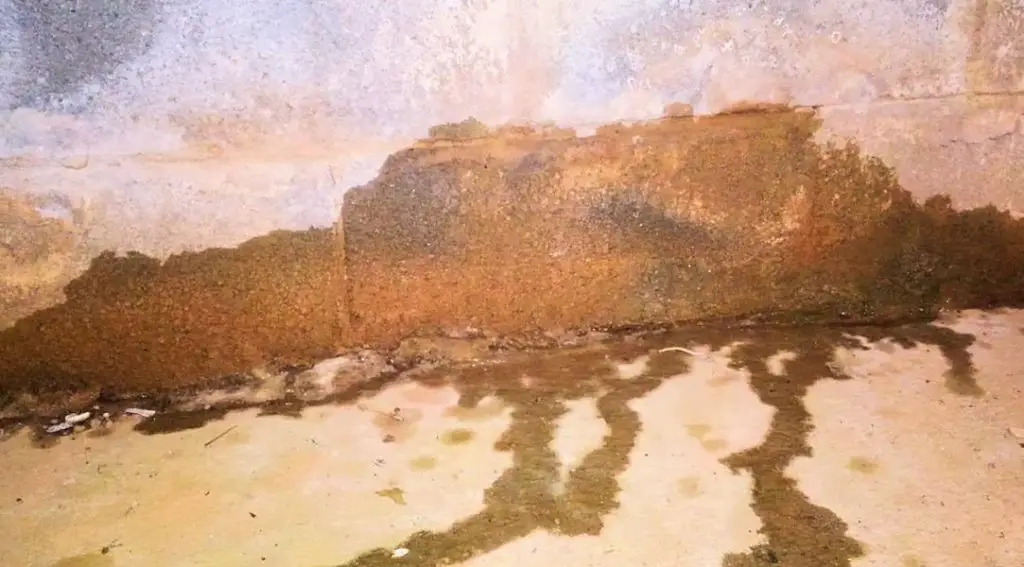
Additionally, if you notice paint peeling off of walls, this is a sign of high moisture levels inside your garage. You may also notice water droplets or stains on the ceiling. These are signs of water damage caused by leaks in your roof.
Finally, the presence of mold is another sign that you should install a dehumidifier in your garage. Mold is a fungus that grows on damp surfaces.
Mold can be found in many places including basements, garages, bathrooms, kitchens, crawl spaces, attics, and other areas where moisture collects. Mold can cause health problems if it gets into your lungs or nose. Mold also causes structural damage to homes and buildings.
You can prevent mold growth by keeping the area dry. However, if you notice water spots on your garage walls, then there could be other reasons for the problem.
Will a dehumidifier make a garage feel cooler?
For those who want to cool down their garage, AC is not the ideal option. The heat and the uneasiness you may feel in the garage are due to the high humidity levels. If you reduce the humidity levels, you will feel much cooler, and a dehumidifier can help you achieve that.
A dehumidifier removes moisture or water vapor from the air keeping the garage cool and dry.
Though a dehumidifier does not lower the air temperature, it feels 5-10 degrees cooler as it reduces the relative humidity. You can also use a dehumidifier with other cooling options, such as an air conditioner, to improve the conditions in the garage.
Do dehumidifiers use a lot of electricity?
No. Dehumidifiers use low energy/energy efficient. For instance, a standard dehumidifier uses only 300W of power. However, its energy consumption increases with size. In that light, a 700-pint dehumidifier will consume around 700W energy.
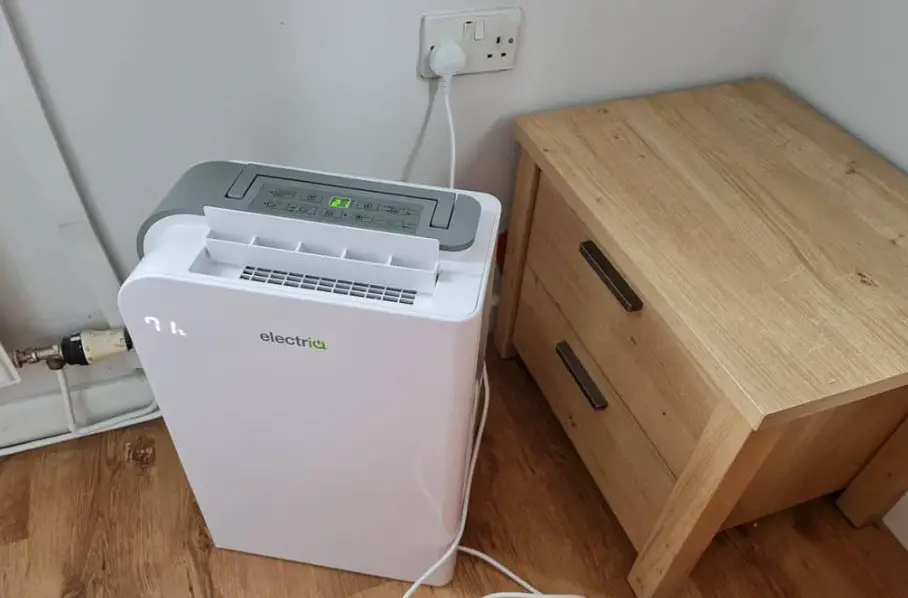
A humidifier generally draws much less energy than other electrical devices like a water heater or air conditioner, garage heater etc. An average dehumidifier consumes as much power as a computer. It costs about $0.03 and $0.16 per hour to run a standard dehumidifier.
How to reduce humidity in the garage without a dehumidifier?
If you don’t want to install a garage dehumidifier, you can try other means to reduce humidity in the garage. Following are a few options:
- Keep out water: If your car gets wet, keep it out to dry. If parked in the garage, the moisture from the car will evaporate and raise the humidity levels. If you cannot keep it outside, towel dry the car before you close the garage door and get rid of standing water through garage floor drains.
- Don’t keep cardboard boxes: Mold requires food to grow, and some species of mold survive on cellulose which is the primary component of paper and cardboard. Thus replacing cardboard boxes with airtight plastic bins is ideal.
- Work on the proper ventilation: If you don’t have many windows in the garage, consider having ceiling fans to improve the air circulation. You can also install an exhaust fan on the exterior wall or the garage ceiling. This setup helps to draw out the moisture from within the garage.
- Improve continuous drain facilities: The ground around your home should slope away from the foundation by at least 6 inches. A lesser slope may lead to water accumulation beneath the concrete slab and increase the moisture levels.
- Add windows: Sunlight is the best means to reduce moisture in a garage; thus, installing windows is a great idea. An open skylight can also bring the required sunlight to the garage and improve air circulation.
Advantage of Having Dehumidifier in Garage
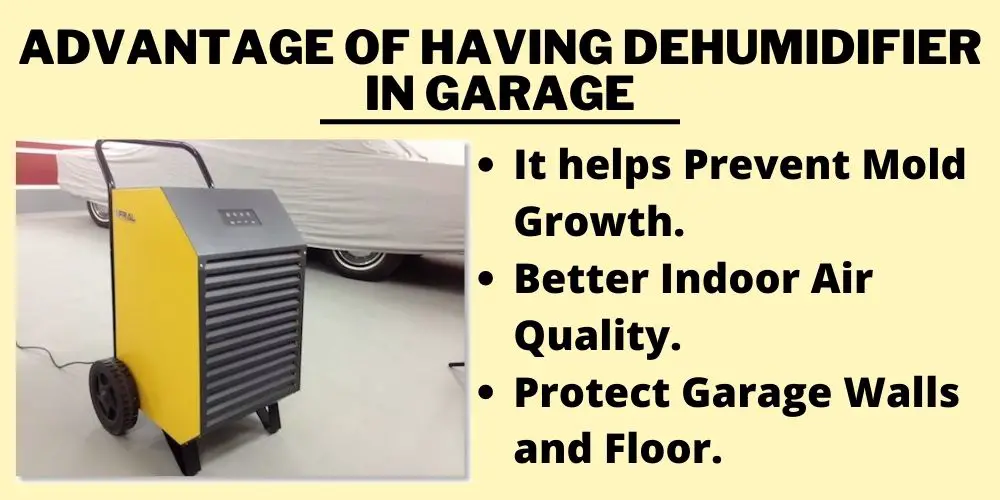
💁It helps Prevent Mold Growth
Mold and mildews grow in damp environments, such as the garage. Most garages are dark and have no windows. The location and natural environment of the garage encourage moisture which leads to the growth of molds.
A dehumidifier can help to drive out moisture and humidity from the garage. When this happens, the chances of growth and development of mold and mildew are greatly reduced.
💁Better Indoor Air Quality
A humid garage feels hot and stuffy. It is impossible to live or work in a garage with high moisture content. This is where a dehumidifier comes in.
It goes a long way in helping you improve the indoor air quality in your garage by removing moisture from the air. When the air is hot and dry, it holds any pollutants present e.g. dust mites and pollen.
💁Protect Garage Walls and Floor
A dehumidifier can be used to help protect the garage walls and floors. When the floor and walls of the garage are wet, the integrity of the entire structure is compromised. If you use wood, the dampness will cause the structure to rot and get weak. Using a dehumidifier will dry the walls and floor and prevent this decay from taking place.
Conclusion:
I hope, I have been able to answer “should I put a dehumidifier in my garage?”.
A damp garage can be problematic as this space doubles as a home office, gym, or additional storage space for many. Thankfully, there are ways to improve the living conditions in the garage, and a dehumidifier is definitely one of the options.
Contents
